
Most of the mines in the mineral-rich Democratic Republic of Congo are operated by multinational companies, which means the Congolese people reap very little of the profits from their own homeland. Since 2007, The Carter Center has been advocating for mining reform by pushing for transparency in mining contracts and conducting human rights impact assessments. It has also encouraged mining companies to fairly compensate people whose lands the companies have taken, including some of the people in these photographs.
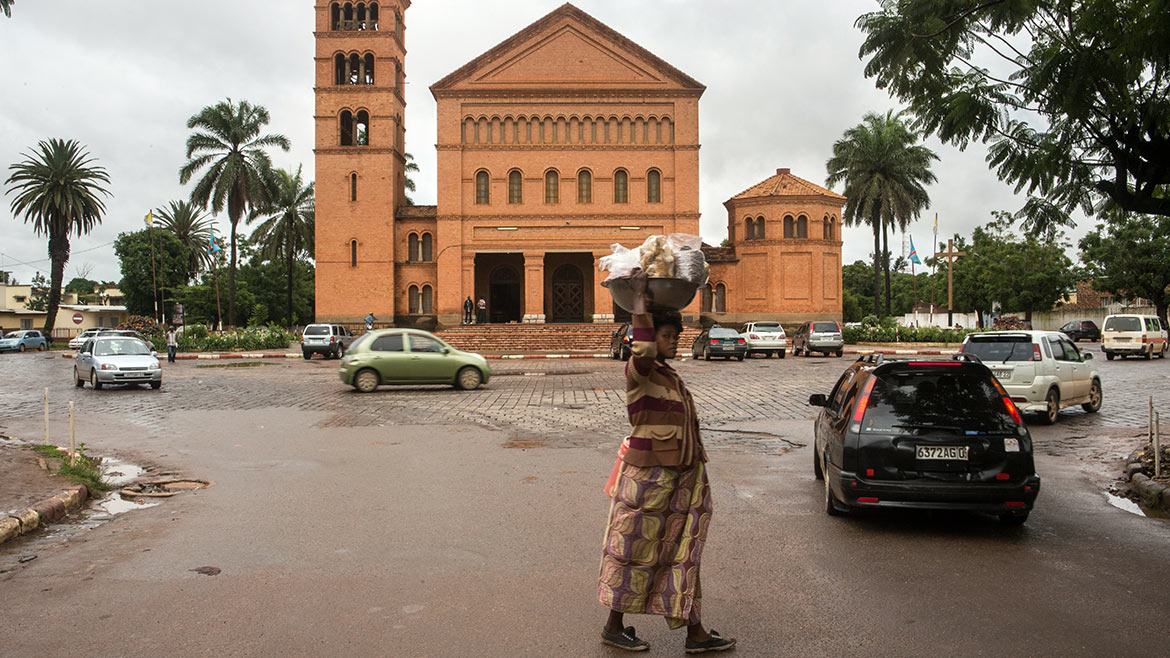
Lubumbashi, a city of 1.5 million in the Democratic Republic of Congo, is the hub for many of the country's biggest mining companies. Many of the farmers whose land was seized in recent years in outlying communities have relocated here to try to make a living. (Photos: The Carter Center/ G. Dubourthoumieu)
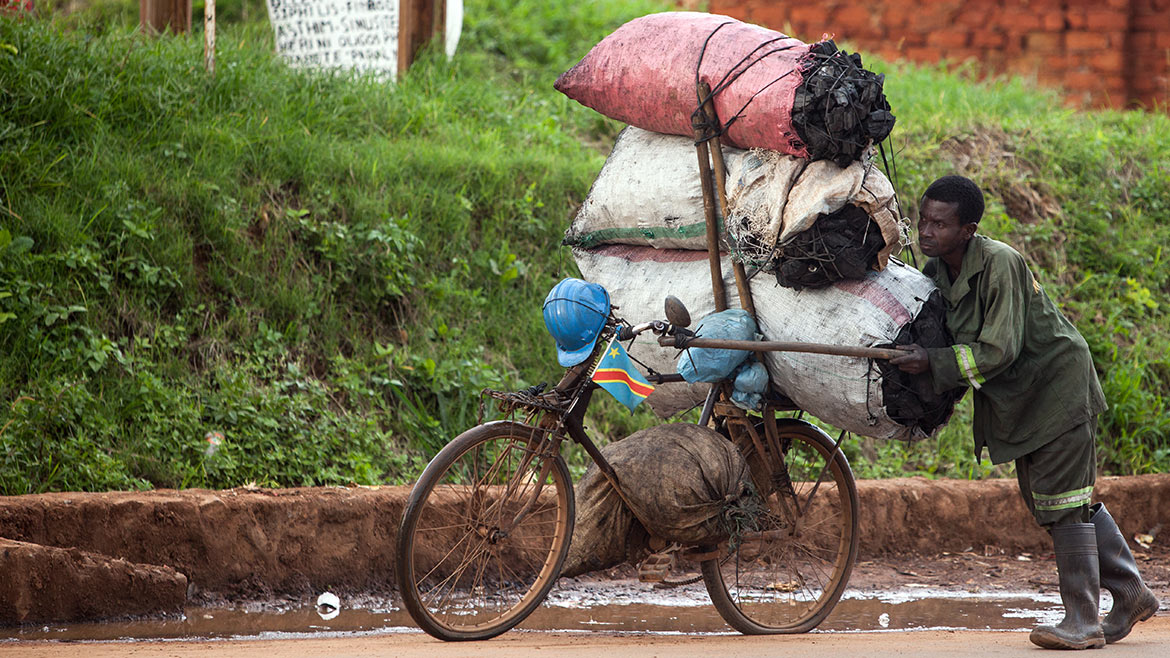
In Lubumbashi, the production and sale of charcoal often is a livelihood of last resort, as it is labor-intensive, destructive to the environment, and not very profitable. Thousands of people who used to live on farms have been forced to find new ways to eke out a living in the city.
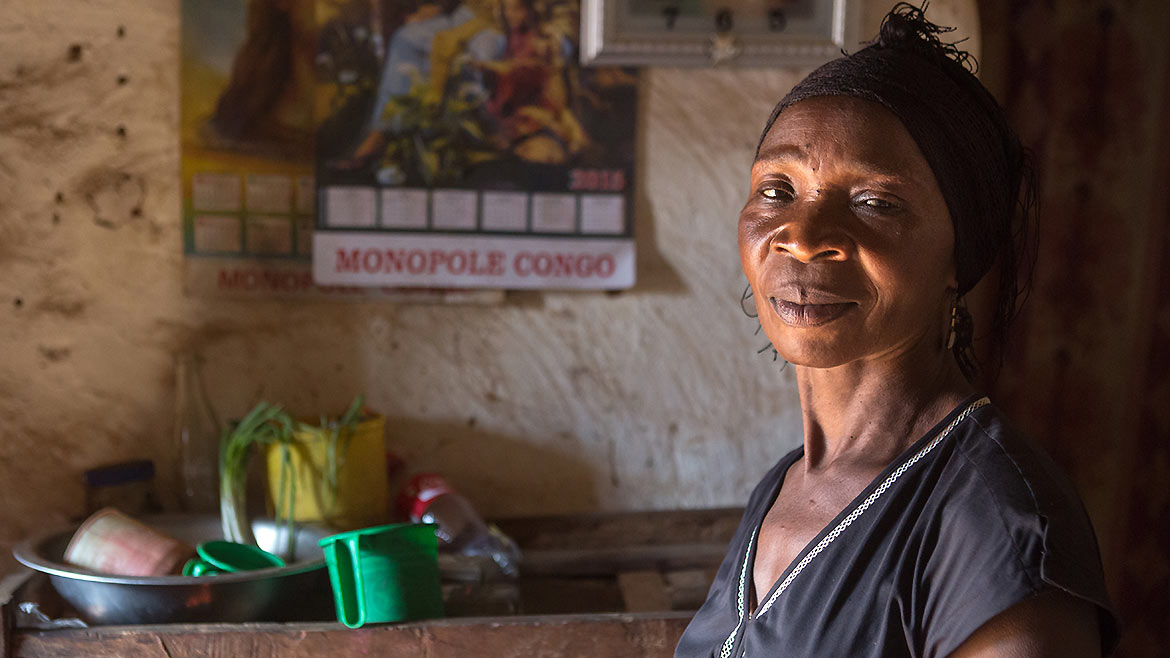
Pétronie Kibela, a 55-year-old widow and mother of nine children, has been renting a home for herself and her nine children since 2007, when Chemaf mining company seized the land that she and her husband had been farming for six years.
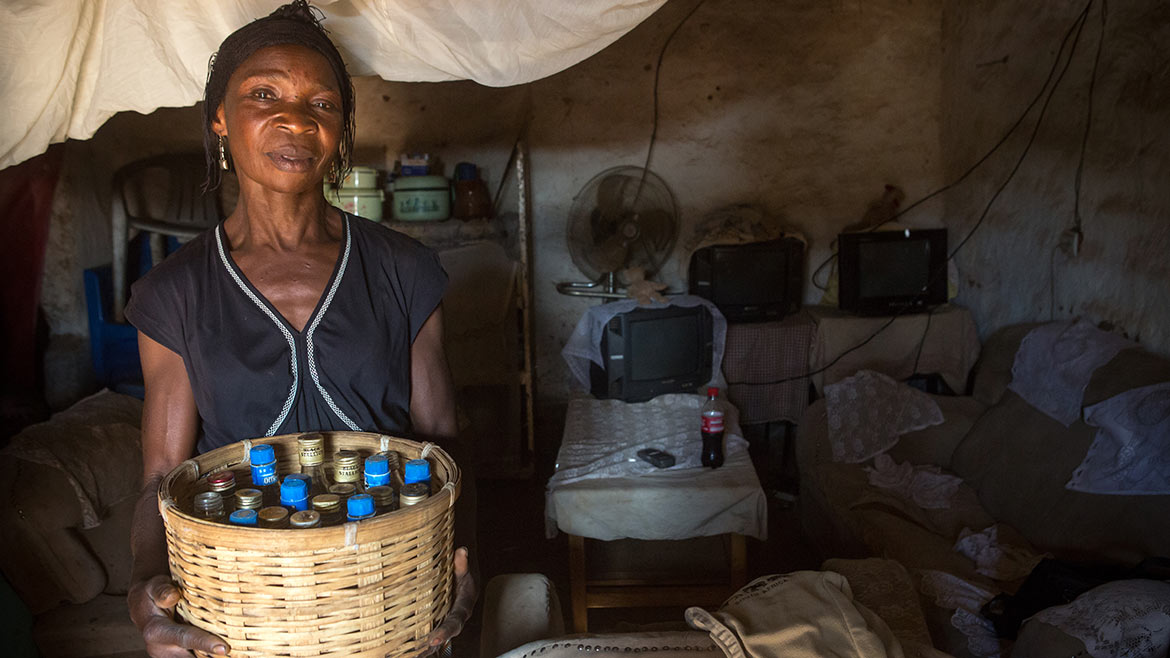
With no land for farming, Pétronie Kibela supports her five sons and four daughters by making a sweet drink called Munkoyo. “I am managing to survive,” she said. Chemaf mining officials had promised to compensate Kibela for her family’s land in 2009, she said, but she has yet to receive anything.
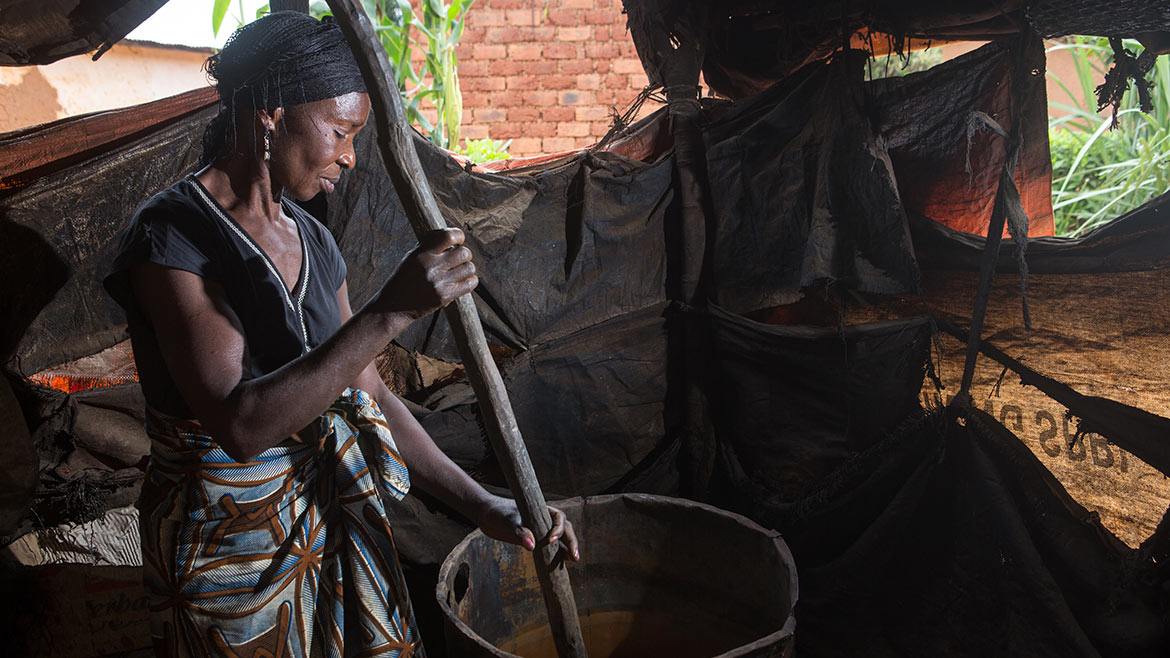
Pétronie Kibela prepares the sweet drink Munkoyo that she sells for a living. Sometimes business is good enough to support her family, but often she struggles to pay the rent.
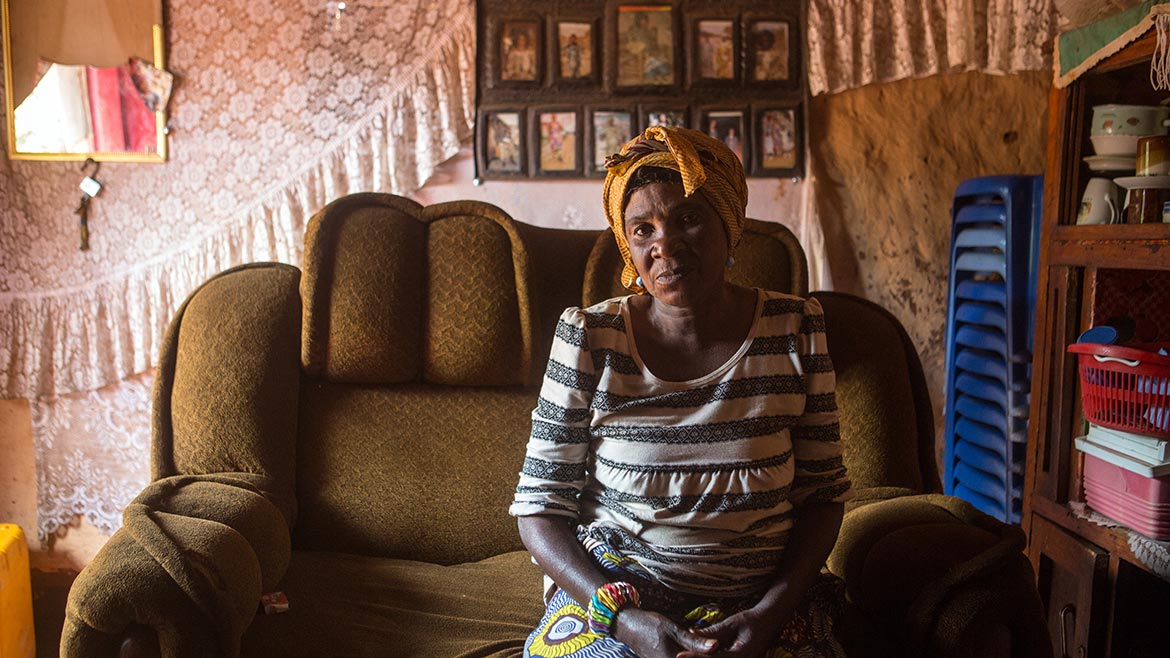
Elisabeth Banza Mwemena, a 58-year-old widow, shares a home in Lubumbashi with three of her 10 children, along with 14 grandchildren. In 2010, the family was forced off the farmland they had been working since 1982 in Washeni village. In addition to growing food for consumption and sale, Mwemena operated a restaurant and cultivated fruit trees. She received some compensation from the Chemaf mining company, but has struggled to support her family since.
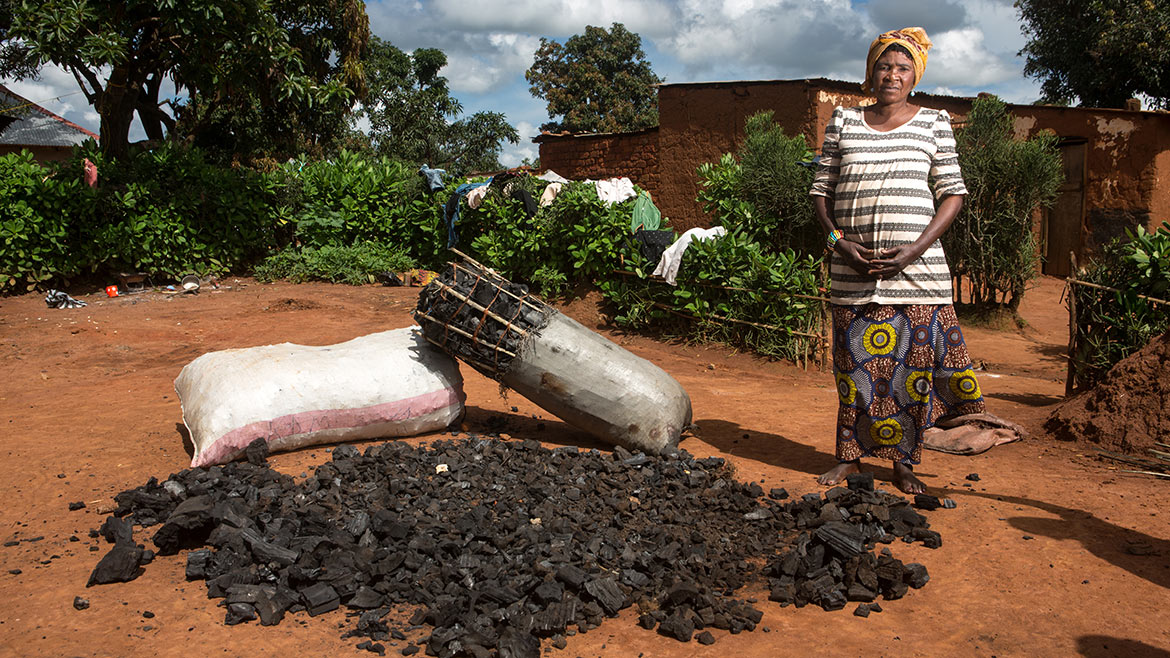
Elisabeth Banza Mwemena remembers “a feeling of revolt and despair” upon having her family’s land seized by the Chemaf mining company. “I shouldn’t have had to leave under these conditions without any assurance of the future, without any alternative means of livelihood.” She makes and sells charcoal to help pay the bills.
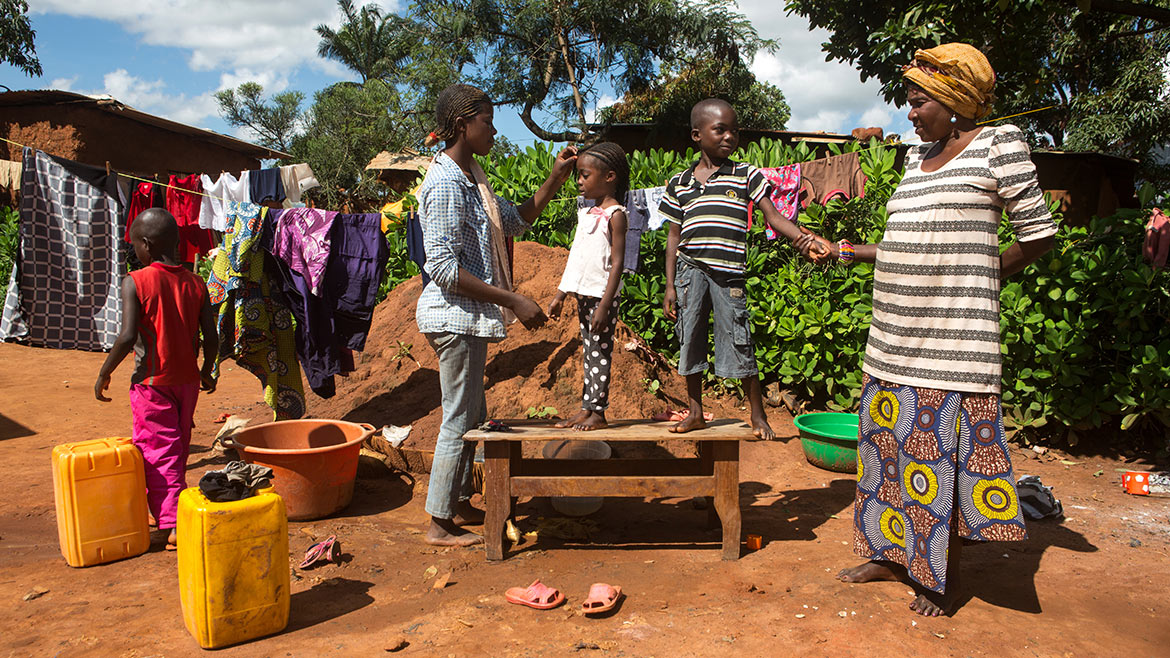
Elisabeth Banza Mwemena continued to work the family’s farm and run a restaurant after her husband died in 2000. But she and her children and grandchildren were forced out in 2010 by the Chemaf mining company.
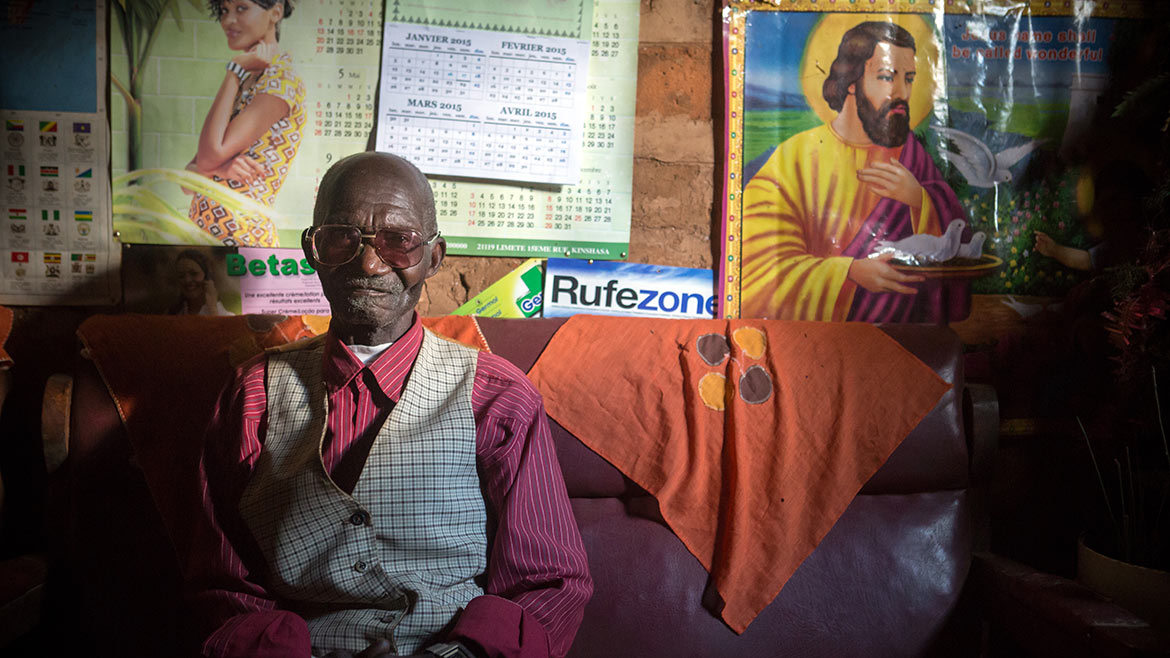
At age 80, Jacob Banza Mpiana has seen much change in his neighborhood of Kalukuluku in Ruashi municipality since the mining companies gained prominence. Now retired, he farmed his family’s land for 40 years before it was seized by the Chemaf mining company, along with 18 mango trees and two undeveloped plots of land in Washeni village.
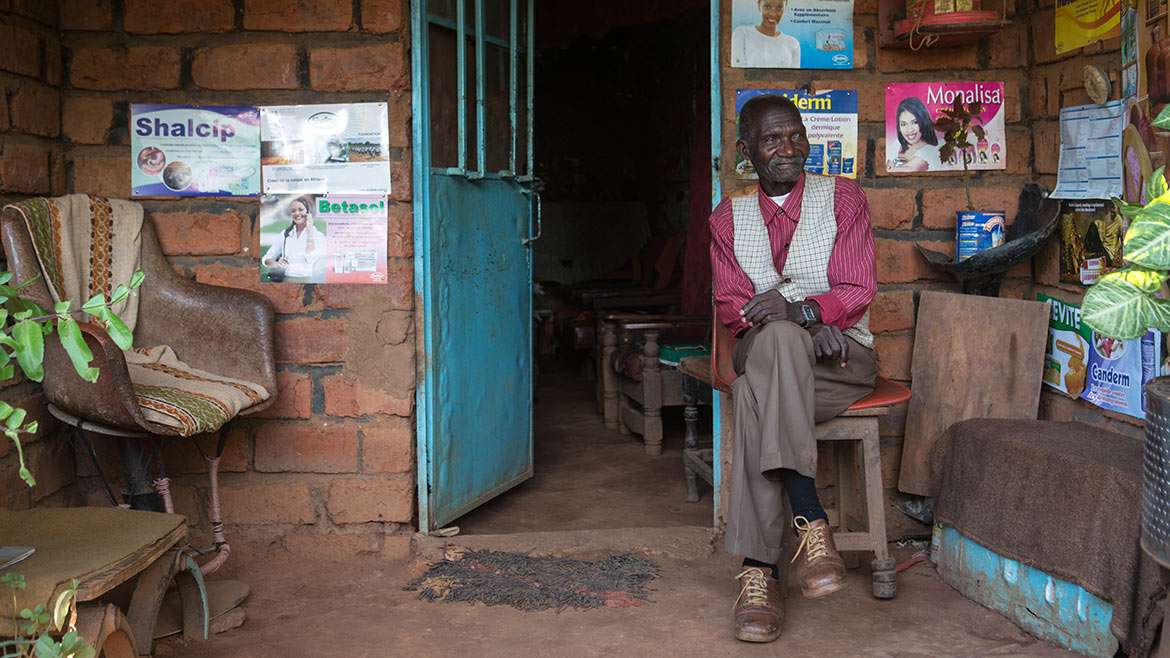
In addition to farming, Jacob Banza Mpiana also served as secretary of the Committee for Farmers, putting forward all the initiatives and claims from the community to the Chemaf company and to the local authorities when thousands of people began having their property seized.
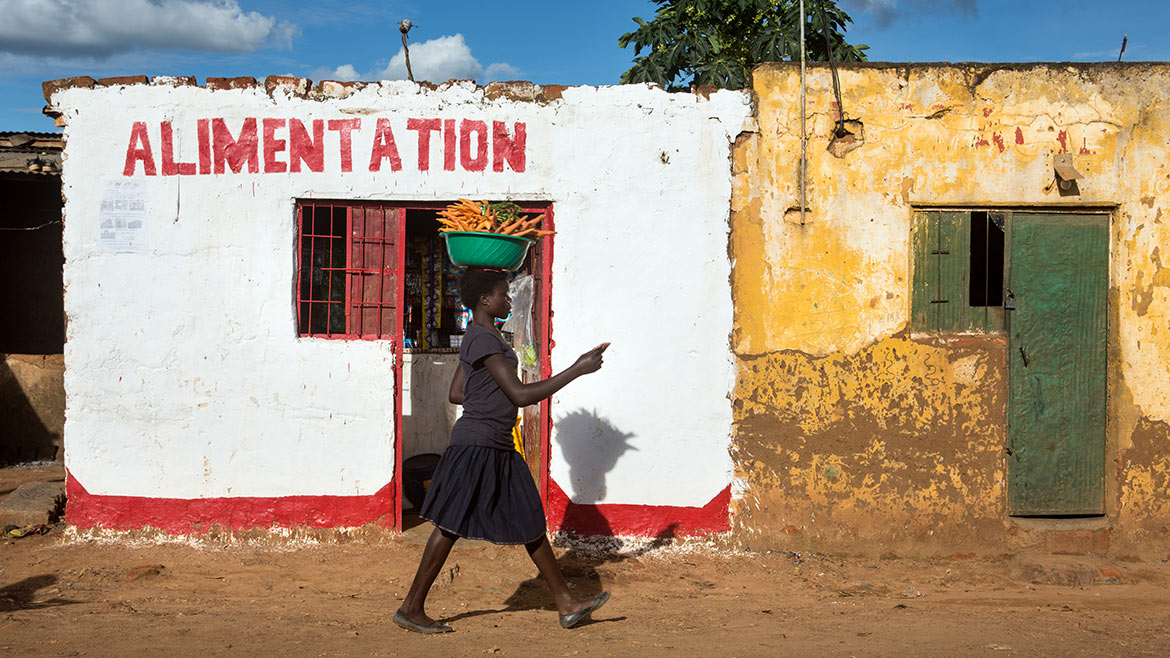
In the Ruashi municipality, many livelihoods are tied to the land. An estimated 6,000 families here were evicted or had their fields and farms seized for mining operations. The Carter Center has been advocating for reforms in the mining sector since 2007.
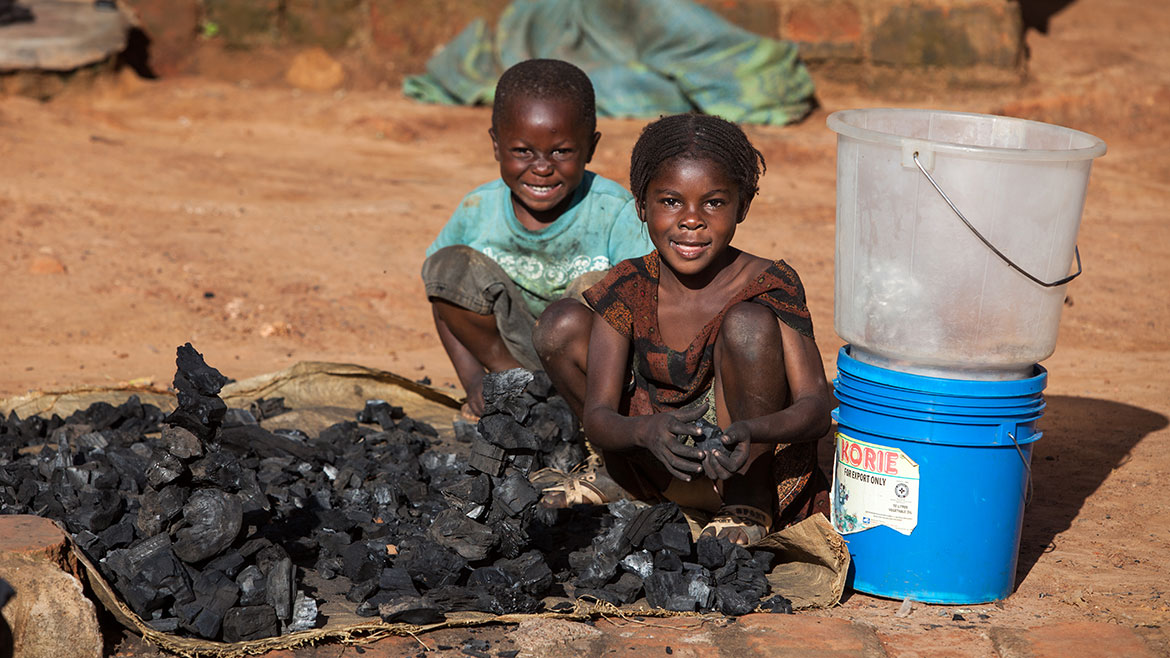
Reform in the mining industry would help families displaced and destroyed by land expropriations and also create a more sustainable future for children trapped in a cycle of poverty.
